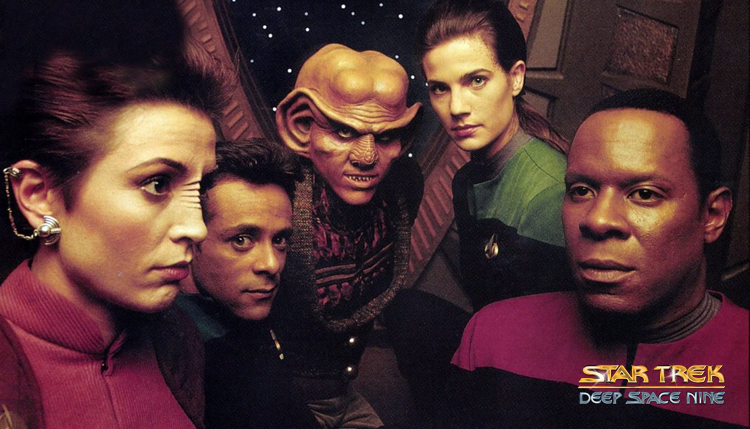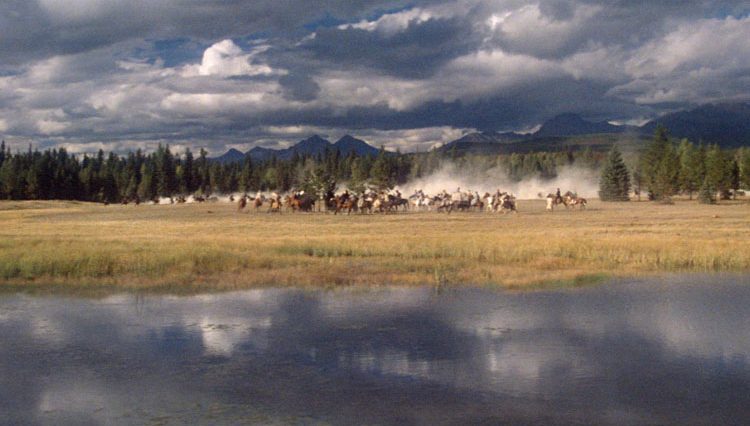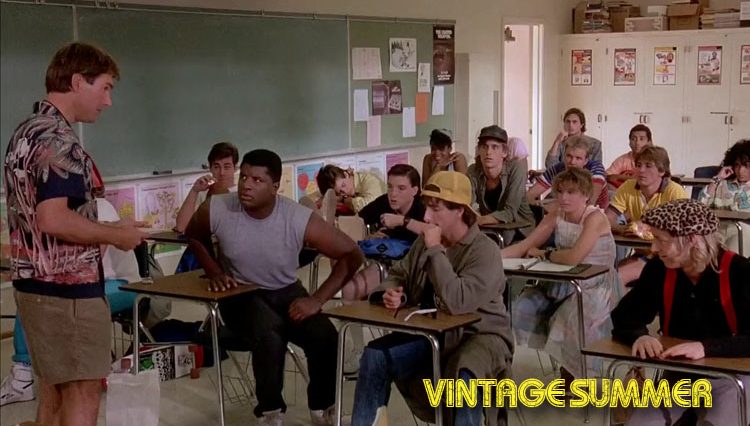
“Allamaraine, count to four. Allamaraine, then three more. Allamaraine, if you can see. Allamaraine, you’ll come with me.”
Long considered one of the worst episodes of Deep Space Nine, “Move Along Home” isn’t nearly as jarring in the first season of the show as it would have been in the later, more depressing years. It’s a rare, “light-hearted” departure for Sisko, Kira, Dax, and Bashir when they get sucked into a multi-level board game brought on board by the goofy Wadi, the first bonafide visitors from the Gamma Quadrant. When they visit Quark, they bring him sticks and undrinkable potables. His ears tingle when they offer him jewels. Quark tries to hustle them with a dabo game after they threaten to break his bank.
As an act of contrition, Quark agrees to play chula, one of their games. He is given four pieces or “players.” The pieces are placed on the second level (you see only children start at the first level), the top of the board. Sisko, Kira, Dax, and Bashir vanish and find themselves in a system of alien corridors, with only tricorders and communicators to use as tools. Quark rolls what look like role-playing dice and plays along thinking this is just a harmless game. I have a problem with the game. Movements are defined by the role of dice, indicating an element of random chance, but the “pieces” in the game, Sisko et al, make decisions based on free will. How would the role of the dice change the outcome of the game and thus, the free will of the pieces?

Or is this analogy for the nature of God? Is God rolling our dice? What if there is no God? Is the game of life simply a multi-leveled obstacle course that requires rhyming hopscotch songs and Tang to survive? Why the tricorders and working communicators? Even more intriguing is that the player is required to learn the rules of the game while playing it. Perhaps the role of the dice is to deal set-backs and nothing more. Quark does have the option to choose a path, double the peril, and double the winnings. Was this episode meant to raise those questions? It almost seems like a psychological test for our players. Kira seems genuinely irritated, but the others are curious, at least until they feel cornered. While Quark learns the rules, the players remain confused from beginning to end.
When the senior officers don’t turn up for their morning shifts, Odo puts it together that the disappearances have something to do with the game. This is an episode that starts off silly, gets serious, and then becomes silly again. Odo insists Quark continue to play the game as he attempts to enter the Wadi ship where he suspects the players are being held inside a game matrix. He locks horns with the vacuous security chief Starfleet has assigned to Deep Space Nine. He tries to get aboard but is whisked back to the station. No one is permitted to end the game. Quark doubles the peril to get the players safely home in fewer moves.

While we definitely feel there are stakes to all of this (at least for the players), the stakes aren’t enough to perpetuate the story. This is not the best kind of story suited to Deep Space Nine. Perhaps Voyager or even The Next Generation, with Wesley subbing for Quark. I do enjoy watching Dax lecture Sisko on the responsibilities of command when he insists on rescuing her after she is injured. There is a lesson to be learned here: Gamma Quadrant games should stay in the Gamma Quadrant. Allamaraine!
Twice a week, Star Trek Rewind explores the Star Trek universe. From Archer to Janeway, Kirk to Picard, and Georgiou to Sisko — boldly read what no one has read before!



